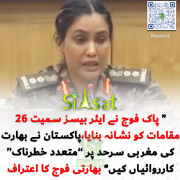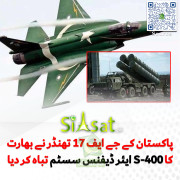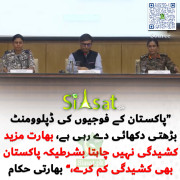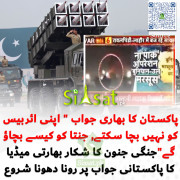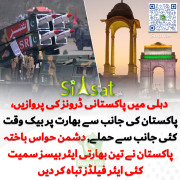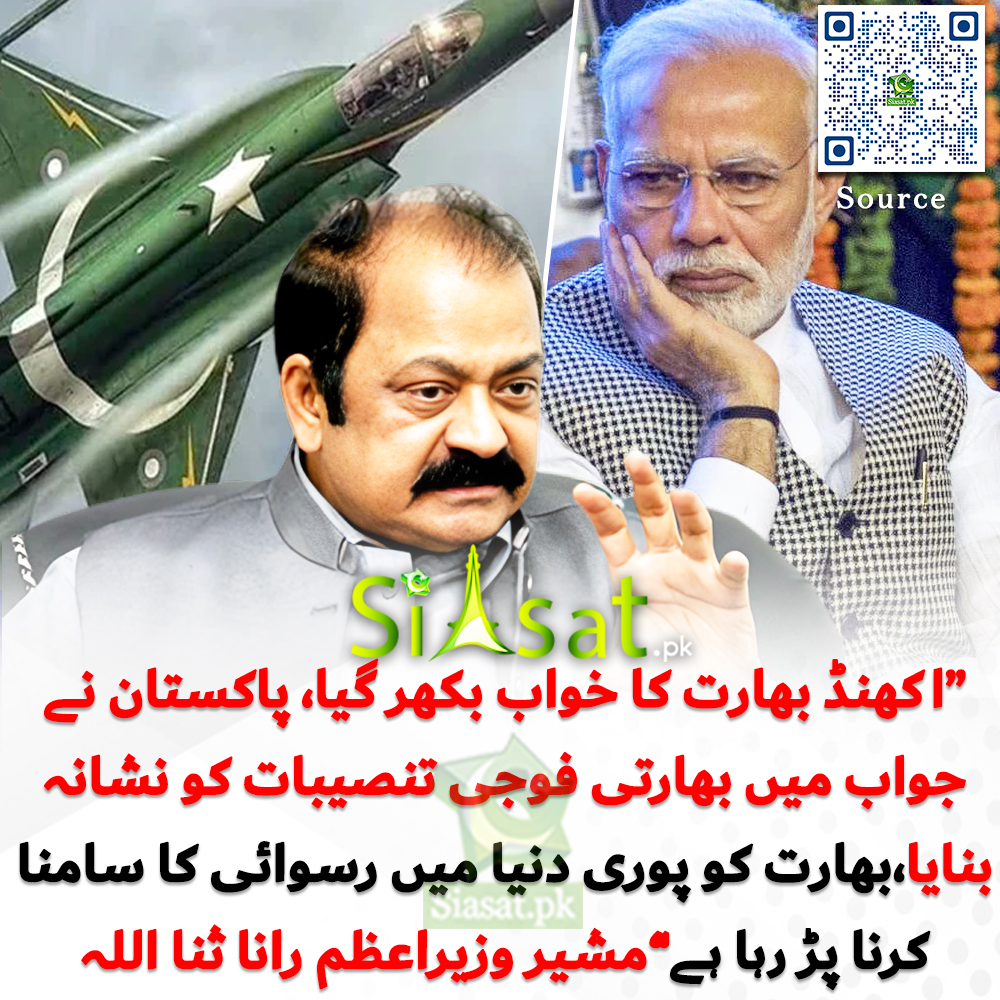A
arshad_lahore
Guest
Advice from Disneyland
Hit and run
Wednesday, June 17, 2009
Shakir Husain
The Shaukat Tarin/Hina Rabbani Khar budget for 2009-10 is no different from any other Pakistani budget presented in the last two decades. There is nothing in there which will tangibly do anything for the 180 million wretched Pakistanis who find it difficult to make ends meet. Pakistani budgets are like Pakistani movies where viewers can decipher the entire plot without even watching the movie because the entire industry is a clich. Our budgets are no different. What makes this budget special for me is just how many drugs our financial team seems to be doing it's almost like they've swapped places with the Bulgarian Women's weight lifting team. Rewind to Shaukat Tarin's explanation of the carbon tax which is being levied on all petroleum products where he advised his compatriots to start using the public transportation system. Ahem, adviser, just what 'system' are you talking about? Flanked by lota state minister for finance and economic affairs who served in the same capacity in the last government from a PML-Q ticket and who could do nothing more than bat her pretty eyes. Neither has sat in a bus nor would they want to; yet they have the gall to tell everyone else to do so. To add injury to the insult both use cars and petrol provided for by the Pakistani taxpayer.
Like all budgets the Finance Ministry has vowed to 'expand' the tax base without quite laying out what their plan to do is. Agriculture and agricultural income remains virtually untaxed because most of our elected representatives are 'farmers'. Ms Khar's father and uncle are 'land-lards' and obviously there is no conflict of interest there. To make things worse Ms Khar has never had a 'real' job in her life other than what has been passed down to her by her father and uncle. During the last elections, Ms Khar was interviewed by a foreign journalist who was puzzled by the fact that she was not canvassing in her constituency to which she replied that it was not done and the male members of her family were doing the needful. Adviser Tareen is far more accomplished given his age and the fact that he is a successful banker with a track record. But being a successful commercial banker and running the Finance Ministry of a country with 180 million people is not quite the same thing. Nor does he have the political legitimacy to really change the economic direction of the country.
The problem with policy-making in Pakistan is that the folks making the policy have very little in common with the 'common man' that they claim to represent. Sure, there are pressures from international donors and agencies but a good financial team is able to find enough elbow room to deliver something to the poor of the country. But the poor of the country or even the middle class do not figure anywhere on the radar for the folks in Islamabad. Huge amounts have been allocated for the agricultural sector which might look good on paper but most of it will benefit the large landlords sitting in parliament rather than the haris who should be getting relief. As the saying goes, "jis ki lathi us ki bhens". In this case the bhens being the treasury of Pakistan. The prime minister was gracious and pleased the people of Pakistan to no end when he stated that from here on Prime Minister House would serve 'simple dishes'. Going out to the majority of the people of this country who manage only one square meal this can only be described as a cruel joke. But the hits keep coming. If representatives of the 'Friends of Pakistan' were to come to the National Assembly session on the budget they would have thought they were in an alternative reality and questioned why Pakistan needed any assistance. They would have based this on the cars which our representatives drove to the session escorted by jeeploads of armed escorts. Mere farmers as per their National Tax Numbers yet driving cars which real farmers haven't even dreamt of. Pious men in cars which are clearly beyond what their tax returns show that is if they file any at all.
The beauty of budgets like the one presented is that the people presenting will shuttle off to conferences and meetings soon after it and all will be forgotten. Till next year and the next. One day Hina Rabbani Khar will be a full-fledged finance minister without having lifted a finger or having had a real job; and that is the tragedy of Pakistan. Despite having capable people who have the brains and the capability to craft budgets which can change the destiny of millions of Pakistanis, we are stuck with mediocrity until the near foreseeable future. Until we get ministers who are willing to put their money where their mouths are with advice and start using the public transport system themselves, educating their children in Pakistan, use the same health care facilities as the rest of the country things will not change. In the meantime we can all pretend that Islamabad is being run by the Loony Tunes and it's not really their fault.
The writer lives in Karachi.
Hit and run
Wednesday, June 17, 2009
Shakir Husain
The Shaukat Tarin/Hina Rabbani Khar budget for 2009-10 is no different from any other Pakistani budget presented in the last two decades. There is nothing in there which will tangibly do anything for the 180 million wretched Pakistanis who find it difficult to make ends meet. Pakistani budgets are like Pakistani movies where viewers can decipher the entire plot without even watching the movie because the entire industry is a clich. Our budgets are no different. What makes this budget special for me is just how many drugs our financial team seems to be doing it's almost like they've swapped places with the Bulgarian Women's weight lifting team. Rewind to Shaukat Tarin's explanation of the carbon tax which is being levied on all petroleum products where he advised his compatriots to start using the public transportation system. Ahem, adviser, just what 'system' are you talking about? Flanked by lota state minister for finance and economic affairs who served in the same capacity in the last government from a PML-Q ticket and who could do nothing more than bat her pretty eyes. Neither has sat in a bus nor would they want to; yet they have the gall to tell everyone else to do so. To add injury to the insult both use cars and petrol provided for by the Pakistani taxpayer.
Like all budgets the Finance Ministry has vowed to 'expand' the tax base without quite laying out what their plan to do is. Agriculture and agricultural income remains virtually untaxed because most of our elected representatives are 'farmers'. Ms Khar's father and uncle are 'land-lards' and obviously there is no conflict of interest there. To make things worse Ms Khar has never had a 'real' job in her life other than what has been passed down to her by her father and uncle. During the last elections, Ms Khar was interviewed by a foreign journalist who was puzzled by the fact that she was not canvassing in her constituency to which she replied that it was not done and the male members of her family were doing the needful. Adviser Tareen is far more accomplished given his age and the fact that he is a successful banker with a track record. But being a successful commercial banker and running the Finance Ministry of a country with 180 million people is not quite the same thing. Nor does he have the political legitimacy to really change the economic direction of the country.
The problem with policy-making in Pakistan is that the folks making the policy have very little in common with the 'common man' that they claim to represent. Sure, there are pressures from international donors and agencies but a good financial team is able to find enough elbow room to deliver something to the poor of the country. But the poor of the country or even the middle class do not figure anywhere on the radar for the folks in Islamabad. Huge amounts have been allocated for the agricultural sector which might look good on paper but most of it will benefit the large landlords sitting in parliament rather than the haris who should be getting relief. As the saying goes, "jis ki lathi us ki bhens". In this case the bhens being the treasury of Pakistan. The prime minister was gracious and pleased the people of Pakistan to no end when he stated that from here on Prime Minister House would serve 'simple dishes'. Going out to the majority of the people of this country who manage only one square meal this can only be described as a cruel joke. But the hits keep coming. If representatives of the 'Friends of Pakistan' were to come to the National Assembly session on the budget they would have thought they were in an alternative reality and questioned why Pakistan needed any assistance. They would have based this on the cars which our representatives drove to the session escorted by jeeploads of armed escorts. Mere farmers as per their National Tax Numbers yet driving cars which real farmers haven't even dreamt of. Pious men in cars which are clearly beyond what their tax returns show that is if they file any at all.
The beauty of budgets like the one presented is that the people presenting will shuttle off to conferences and meetings soon after it and all will be forgotten. Till next year and the next. One day Hina Rabbani Khar will be a full-fledged finance minister without having lifted a finger or having had a real job; and that is the tragedy of Pakistan. Despite having capable people who have the brains and the capability to craft budgets which can change the destiny of millions of Pakistanis, we are stuck with mediocrity until the near foreseeable future. Until we get ministers who are willing to put their money where their mouths are with advice and start using the public transport system themselves, educating their children in Pakistan, use the same health care facilities as the rest of the country things will not change. In the meantime we can all pretend that Islamabad is being run by the Loony Tunes and it's not really their fault.
The writer lives in Karachi.

